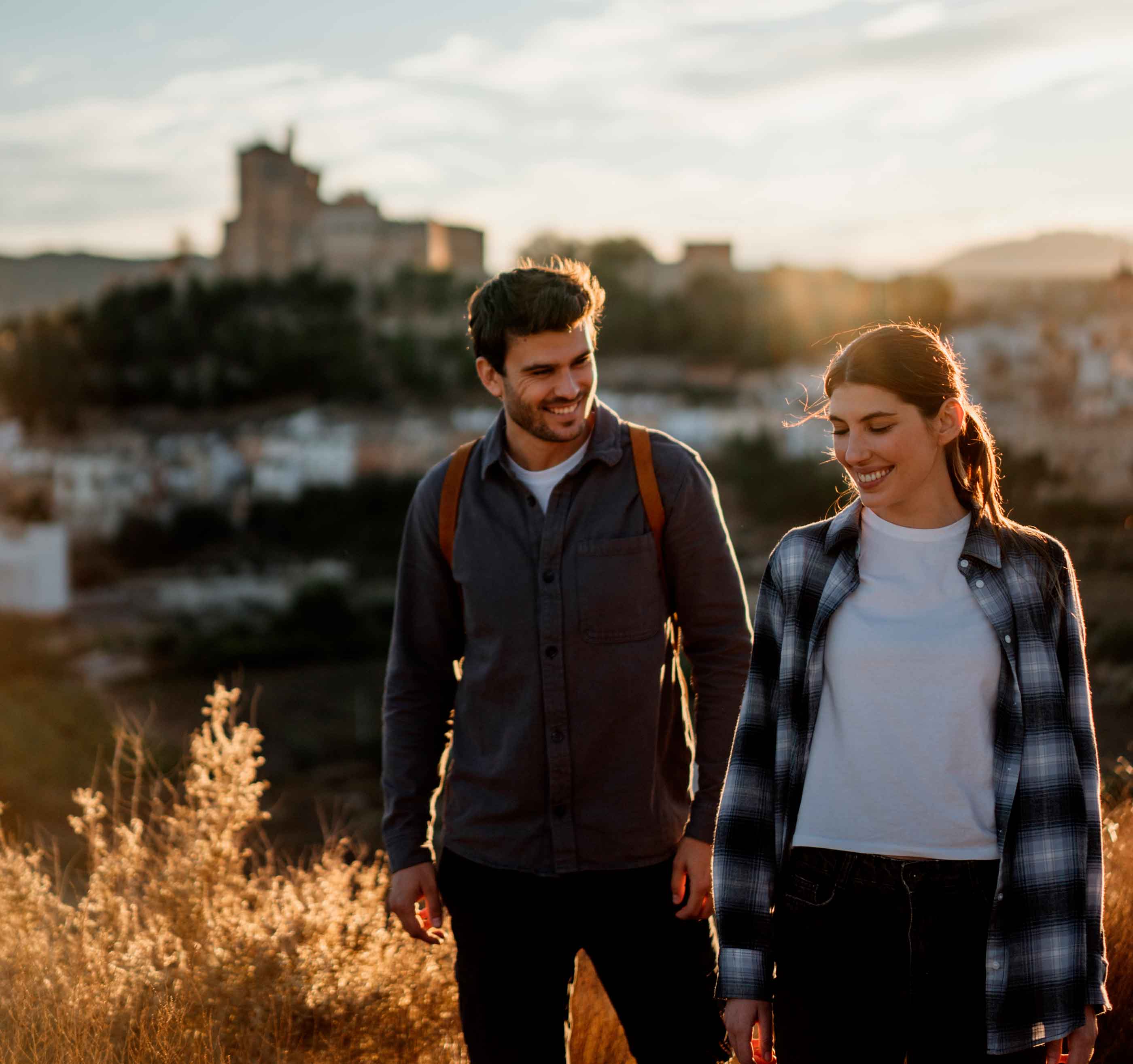The wine horses and the art of harnessing in Caravaca
In Caravaca de la Cruz, one of the most impressive and unique festivities in Spain is...
Por: Turismo Región de Murcia en 5/16/24 1:59 PM

The Jubilee Year in Caravaca de la Cruz is an event of great importance both for Catholic believers and for history and culture enthusiasts. This year, the city celebrates its septennial Holy Jubilee, attracting a multitude of visitors from around the world.
The pilgrimage is based on the religious belief in the presence of a splinter of the "Lignun Crucis," the cross on which Jesus Christ died, also known as the "Santísima y Vera Cruz." This sacred symbol has attracted pilgrims for centuries, who come in search of spiritual solace, healing, or redemption.
For those planning to pilgrimage to Caravaca, we present some useful tips:
-Firstly, those who wish to obtain the certificate, must acquire the credential from the Episcopal Vicariate of Cartagena or the other accredited venues. Additionally, during the pilgrimage, the credential must be stamped at various sacred sites or at other affiliated establishments.
-Comfortable and suitable clothing and footwear should be worn for walking.
-In case of wanting to complete the entire journey and not in stages, the pilgrim must ensure they are in good physical and mental shape before setting out.
-To increase individual motivation, it is advisable to spend some time researching the history and traditions of Caravaca, thus helping to give more meaning to the pilgrimage. You can find more information about the journey on our website.

Pilgrimage Route:
The Levante Way offers an experience that combines legend, spirituality, and culture in a route of approximately 118 kilometers that leads the pilgrim to the Sanctuary of the “Santísima y Vera Cruz” of Caravaca. This route starts from Orihuela and merges the religious aspect with the rich heritage and charms of the interior of the Region of Murcia. It consists of five sections:

Stage 1. Orihuela - Murcia (24 kilometers): The signposting of the path directs the pilgrim through the countryside to the Region of Murcia, following the bank of the Segura River. The stage ends in the city of Murcia, where you can rest and enjoy the famous appetizer called "marinera" in one of the terraces.
Stage 2. Murcia - Alguazas (26 kilometers): This stage crosses much of the fertile Murcian orchard, known as the 'Orchard of Europe'. Along the way, you pass by the Museum of the Orchard in Alcantarilla and can admire the Ñora Wheel and its aqueduct, prominent monuments of the Murcian orchard. The stage culminates in Alguazas, after traveling along the Greenway, a pleasant path for active and nature tourism.
Stage 3. Alguazas - Mula (26 kilometers): In this section, you discover the characteristic eroded landscapes known as badlands. Additionally, the Region of Murcia is full of Roman remains, some of which can be visited along this stage, such as the site of the Roman Villa of Los Villaricos.
Stage 4. Mula - Bullas (21 kilometers): This stage offers the opportunity to visit the Sierra Espuña Regional Park, an area of great natural and sustainable value. Following the Northwest Greenway, you arrive at Bullas, known for its vineyards, wines with Protected Designation of Origin, and a wine route recognized by the Spanish Association of Wine Cities.
Stage 5. Bullas - Caravaca (21 kilometers): This last section is the most mountainous and challenging, with 21 kilometers of ascent that exceed 500 meters in altitude. The pilgrim will pass by old railway tracks and reach the site of the Christ of Carrascalejo, where the oldest winery in Bullas is located. Finally, you arrive at Caravaca de la Cruz, where the Sanctuary of the True Cross awaits atop the hill, making the journey and effort worthwhile.
For those who also wish to visit the surroundings of the route, we recommend visiting the following points of interest:
The Basilica-Sanctuary of the True Cross is the spiritual epicenter of Caravaca. It is where the Lignum Crucis resides, and it also offers an area set up as a museum that has a large exhibition with different relics.
The House-Museum of the Wine Horses, a building dating back to the 18th century that showcases the history of the celebration of the wine horses, a typical local celebration declared Intangible Cultural Heritage of Humanity by UNESCO.
The monastery of Santa Clara is a place where the tranquility and austerity of the 17th-century cloistered building can be felt. In baroque style, it is a place worth visiting.
Church of La Soledad: a fortified deconsecrated church that currently serves as the archaeological museum of the city.
The Plaza del Arco is declared a Cultural Interest Asset, it is the perfect place to relax and take a break from all the effort made during the journey. It is also the ideal place to take advantage and acquire a handmade Cross of Caravaca.
Lastly, we recommend the immersive experience "The Mystery Man", enjoyable at the Church of the Society of Jesus. It is a historical, artistic, and scientific journey about the studies of the Holy Shroud and its impact on the Christian world, inviting you to travel through time and science.
With all this information in mind, the pilgrimage to Caravaca is a wonderful opportunity to get to know this land of miracles and traditions that leave no one indifferent. Each step in this journey offers a new story to unravel and an experience to live. For more information, do not hesitate to visit www.caminodecaravacadelacruz.es.
Happy journey!
In Caravaca de la Cruz, one of the most impressive and unique festivities in Spain is...
This year, the Camino de la Cruz is enriched with new experiences, promising not only to...
The Region of Murcia, known for its sunny climate, enviable year-round temperatures, and diverse...